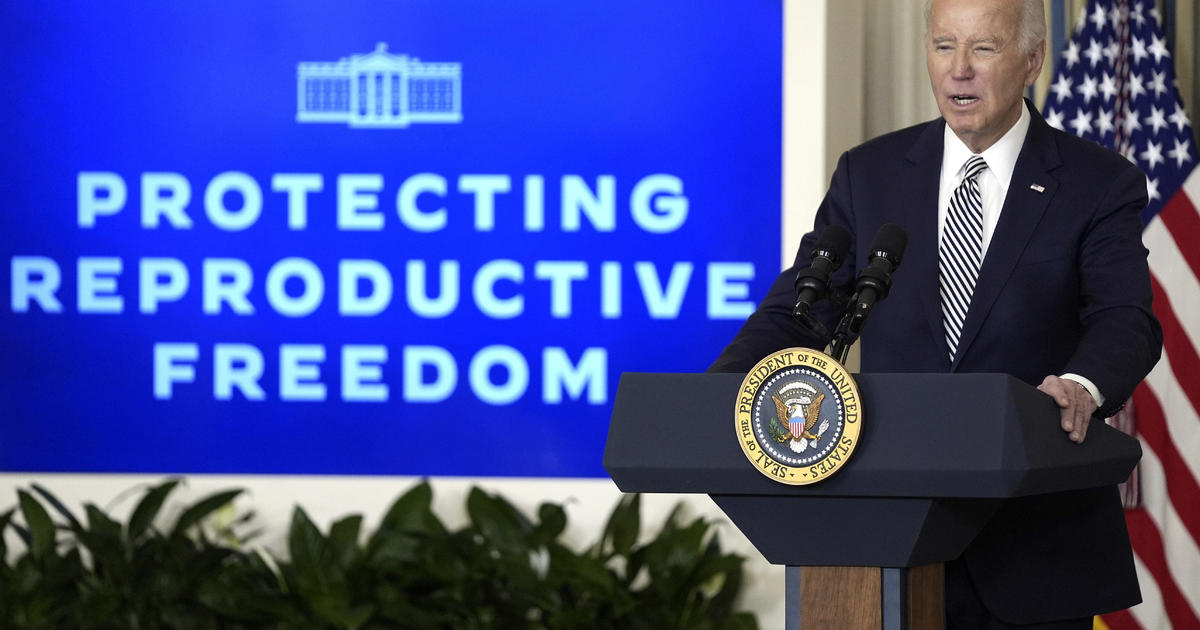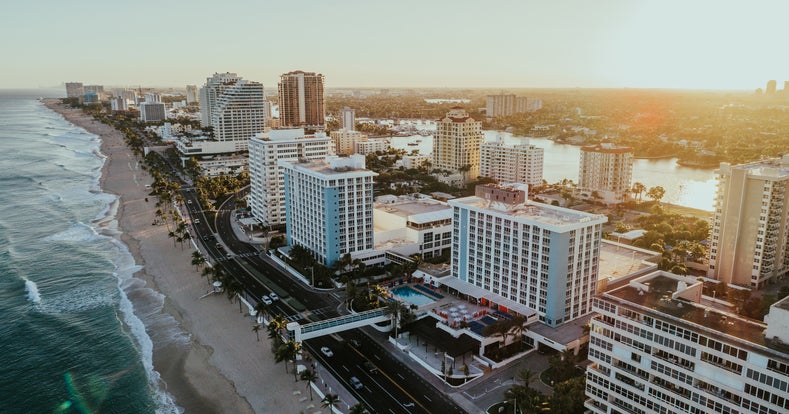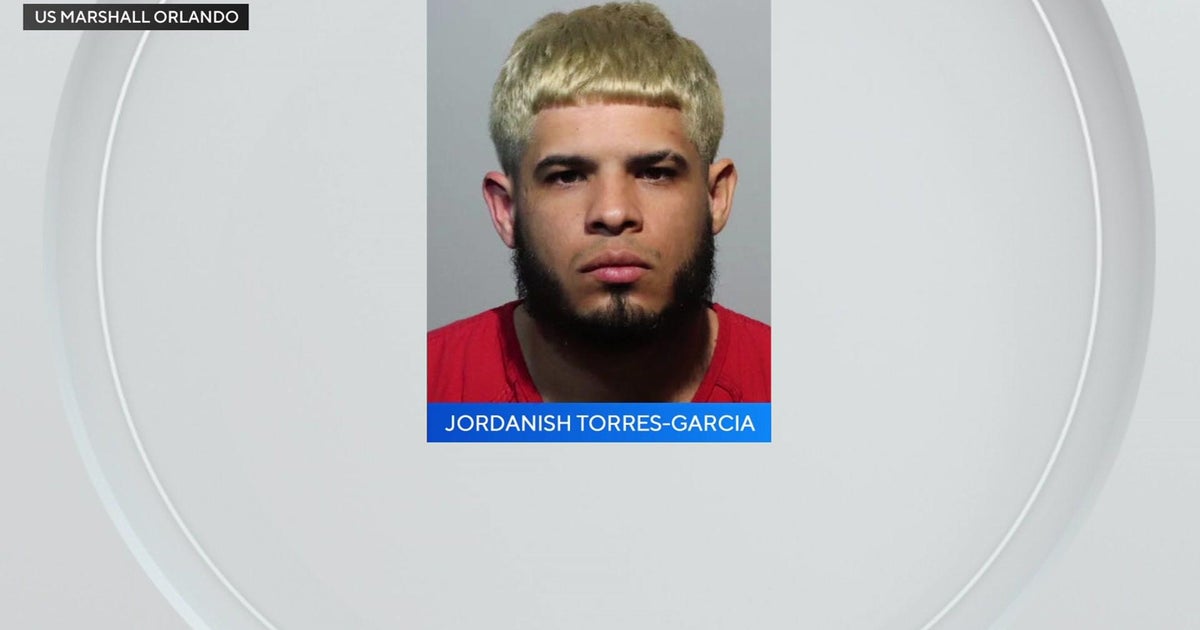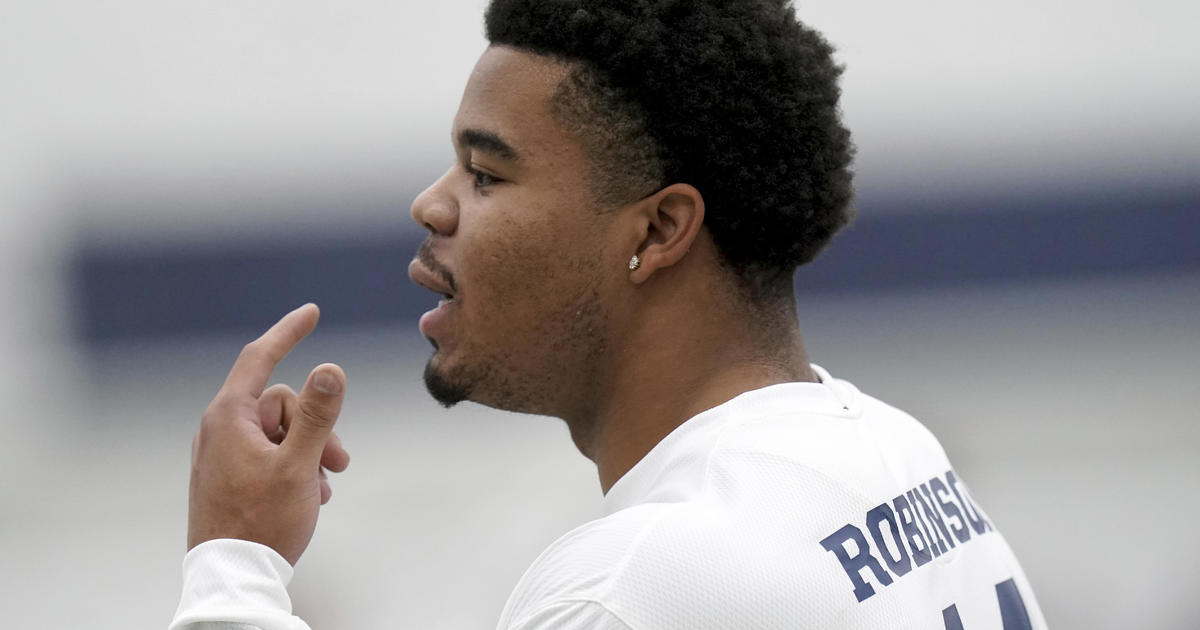Venezuela's Juan Guaidó Admits He Needs More Military Support; Trump Warns Of Worse To Come
MIAMI (CBSMiami/CNN) -- Venezuela's interim President Juan Guaidó admitted that this week's anti-government protests lacked the support of enough military defectors to topple the Nicolas Maduro regime.
Just the day before, Guaidó had announced that the attempt to oust Maduro's government was entering its "final phase," kicking off two days of protests, some of which turned violent.
Guaidó, the current head of the National Assembly had hoped that the Tuesday announcement and ensuing protests would convince key members of the military to defect.
"We have to acknowledge that yesterday there were not enough (people), we have to insist that all the armed forces protest together," Guaidó said Wednesday. "We are not asking for a confrontation. We are not asking for a confrontation among brothers, it's the opposite. We just want them to be on the side of the people."
Guaidó also called on public sector employees to strike.
More than 100 people were injured in this week's demonstrations, according to the independent Venezuelan Observatory of Social Conflict.
Human Rights Watch reported that 168 people were detained and said it believed that security forces fired shotgun pellets at demonstrators and journalists. A CNN crew saw what appeared to be birdshot and shotgun shells lying on the streets in Caracas after a protest, but it was unclear how old they were.
Earlier this week, Guaidó scored an apparent victory when the former head of Venezuela's security services appeared to quit.
In an open letter "to the people of Venezuela" making the rounds on social media, Manuel Ricardo Cristopher Figuera accused the Maduro regime of plundering the country. Hours after the letter surfaced, Maduro announced Figuera would be replaced, without explaining why.
A US government official told CNN Wednesday that Washington believes the letter is genuine.
Two 'days of action'
Maduro has blamed US President Donald Trump for what he called Tuesday's "coup-de-etat attempt." In his first public appearance since the protests began, he appealed to supporters for their "utmost loyalty" and urged them to take to the streets to fight for democracy.
What comes next is unclear.
Maduro called for two "days of action" over the coming weekend, asking all elected officials to unite for the people of Venezuela.
Trump said that Thursday is "probably going to be very bad."
"It's a terrible thing. People are starving, people are dying. There's no food, there's no water," the US President said in an interview with Fox Business. "It's an incredible mess."
US Secretary of State Mike Pompeo said military action is possible and "if that's what's required, that's what the United States will do." Acting Defense Secretary Patrick Shanahan said the Pentagon had "done exhaustive planning, so there's not a situation or scenario that we don't have a contingency for."
'Good old-fashioned power politics'
Maduro and his predecessor, Hugo Chavez, have for years been accused of triggering a humanitarian catastrophe through their hardline socialist economic policies. Maduro says he was democratically elected and the current efforts to remove him, along with the overall crisis, are being orchestrated by the United States.
Maduro's leadership has been in the international spotlight since his reelection in May 2018, a contest slammed by international observers as a sham. The Lima group, an alliance of 14 Latin American nations and Canada, said that vote did not "adhere to the international standards of a democratic, free, fair and transparent process."
In January, Guaidó declared himself interim President amid massive protests, days after Maduro was sworn in for his second term. The opposition leader has vowed to set up a transitional government and organize free and fair elections.
Dozens of Latin American and Western countries have recognized Guaidó as the legitimate leader of Venezuela, while Russia, Cuba and China are among the most prominent states supporting Maduro.
Pompeo and Trump's national security adviser, John Bolton, both made the rounds on US media Wednesday to voice support for Guaidó and accuse Russia of propping up Maduro.
"The Russians like nothing better than putting a thumb in our eye," Bolton told CNN Wednesday. "They're using the Cubans as surrogates. They'd love to get effective control of a country in this hemisphere. It's not ideological, it's just good old-fashioned power politics."
Russian officials have denied that narrative and accused the US of disseminating false information to "demoralize the Venezuelan army" and conduct an "information war."
Maduro also denied that he had been ready to leave the country but had been talked out of it by Russia, a claim that Pompeo made to multiple US media outlets this week.
Pompeo spoke with Russian Foreign Minister Sergey Lavrov by phone Wednesday about Venezuela. The Russian side said it stressed that US interference in the internal affairs of a sovereign state was a violation of international law, while the State Department said Russia and Cuba's intervention in Venezuela was "destabilizing."
(©2019 CBS Broadcasting Inc. All Rights Reserved. Cable News Network, Inc., a Time Warner Company, contributed to this report.)



